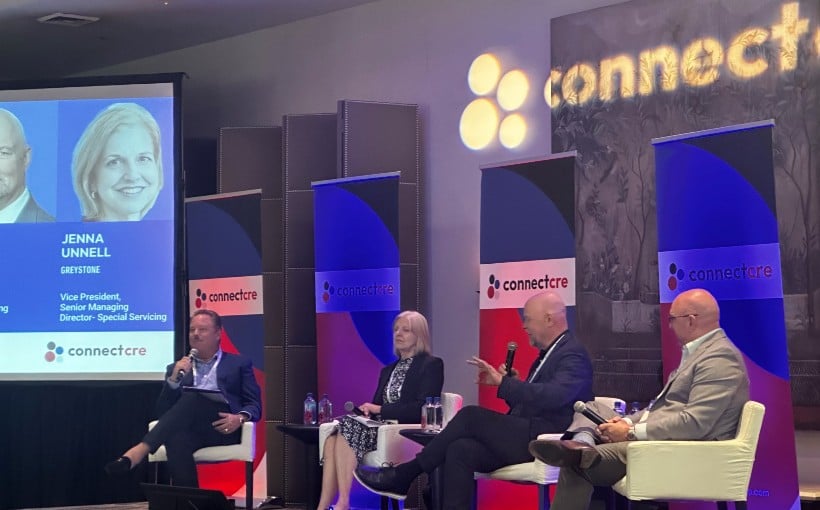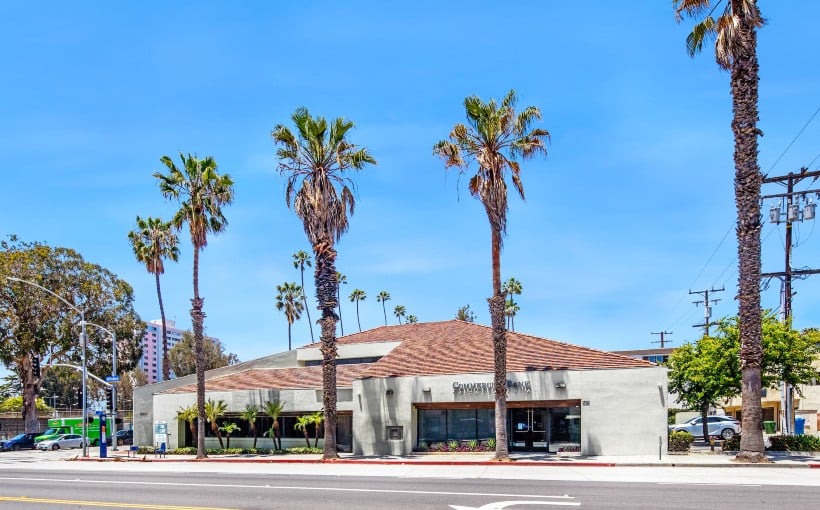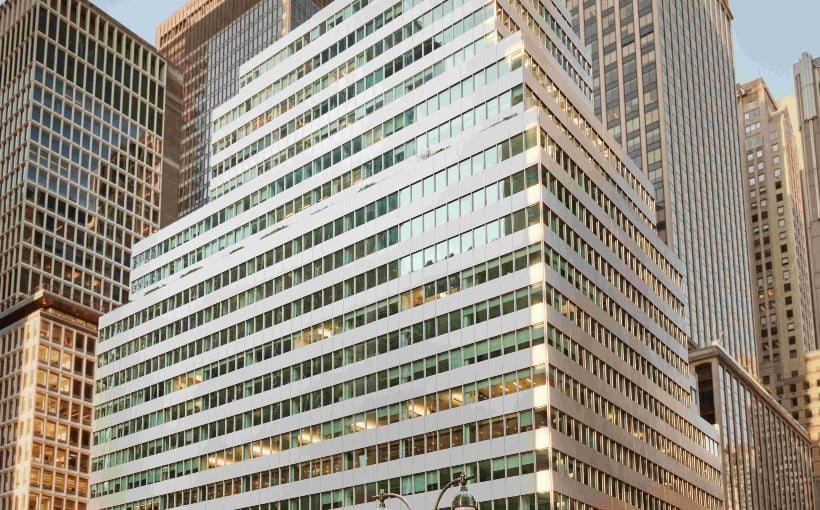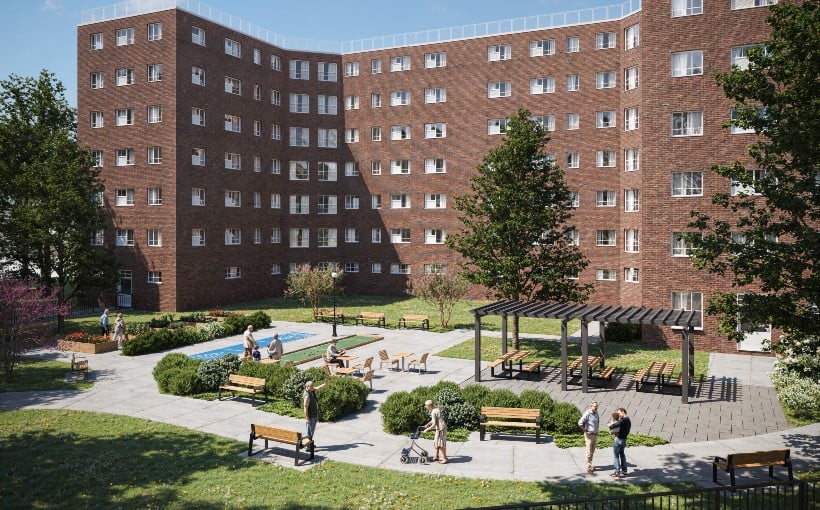Despite some major companies announcing their plans to return to the office, the office sector remains a significant contributor to monthly increases in distress metrics. According to experts on a panel titled “Distressed Property Outlook: The First Inning,” this trend is only just beginning.
During an in-person event called Connect Distressed Investment & Finance held at the Luxe Sunset Boulevard Hotel in Los Angeles on October 22nd, Curt Spaugh, director of special servicing, stated that he believes there is more distress yet to come. He also mentioned that his company has not liquidated much inventory yet but expects more activity between 2025 and 2026 with SASB and conduit CMBS loans as well as CBD office properties.
The panelists agreed that there is currently enough distressed activity happening within the market for trends to be identified. Jenna Unell, VP/senior managing director of special servicing at Greystone shared her experience with defaulting properties primarily occurring at maturity due to limited liquidity for offices right now. She also noted that finding refinancing opportunities or other transactions are typically how they handle these distressed loans.
Mitchell Hunter from Trimont discussed his company’s current workload which includes about 12-15 properties going through foreclosure proceedings by year-end – all of which are office products.
The discussion covered various property types including retail and lodging along with multifamily owners experiencing financial challenges due rental rates dropping by around 2-3% across most U.S apartment markets while occupancy rates have dropped from around 92-93% down into the high eighties range resulting in concessions being offered such as two-three months free rent on one-year leases becoming common practice once again especially when it comes new apartment deliveries where oversupply can become problematic particularly within Sun Belt states according moderator Steve Pumper who serves Transwestern’s executive managing partner role adding “all places you want own getting overbuilt.”
Spaugh drew comparisons between proactive CRE owners who’ve made necessary adjustments to their properties in order to remain competitive and retail landlords who’ve overcome the risk of obsolescence by enhancing amenities. He also mentioned that those who have not adapted may struggle.
Unell shared her experience with hospitality assets stating that while some have had successful resolutions, others are struggling particularly CBD hotels which are experiencing significant losses.
The event also included discussions on Fannie Mae and Freddie Mac, opportunistic capital, and the current investment sales market. More coverage on these topics will be available later this week.




